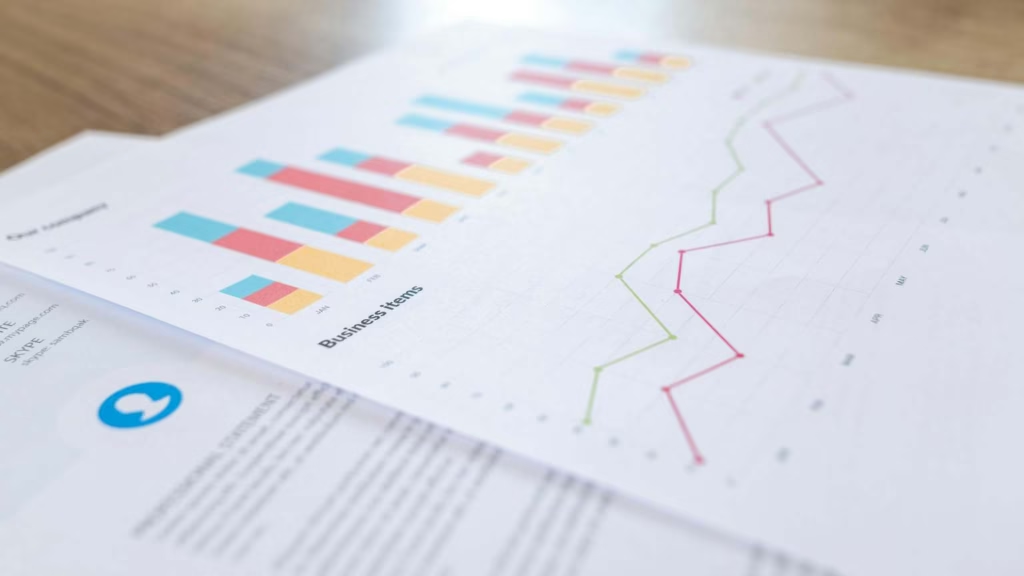Discover how inflation impacts your savings and how an inflation savings calculator helps secure your future financial stability.
Table of Contents
Inflation: The Quiet Money Eater
Inflation is a silent thief. It steals your money’s power bit by bit. That $3 carton of eggs? Now it costs $4.50. Rent and healthcare keep going up. But your pay often does not match.
You may ask: Will my money last?
This is a big worry as we move toward 2026. Prices may go up more. The world is changing fast. Supply chains shift. Energy costs jump. Central banks make new moves.
The good news? A free tool can show you the truth. Try our how long will my money last calculator. It shows how long your savings can last. It factors in real life inflation. You see your future clearly.
What Is Inflation?
In simple terms, inflation means prices go up. Your dollar buys less than before.
In 2024, US inflation sat at about 3%. That is better than 2022’s 9%. But it is still too high. The Fed wants it at 2%.
If you have $100,000 saved and do nothing, it will lose 26% of its value in ten years. That is a lot!
Inflation Hurts Your Savings
Inflation does not just change prices. It changes your whole financial plan.
- Cash in the bank loses value fast.
- Fixed income like bonds falls behind.
- Your investment gains may look good. But after inflation, they are small.
Let’s see an example. Say you earn 4% on savings. But inflation is 3%. Your real gain is just 1%. Over 20 years, this small gap costs you big time.
Why Use a Money Last Calculator?
This free tool shows you the real truth. It factors in inflation so you see what matters.
Ask these questions:
- How long will my savings last with today’s prices?
- How much do I need to earn to keep my life?
- How much should I save now for later?
The tool uses just three things:
- How much you have saved
- How much you spend each year
- What you think inflation and returns will be
Change these numbers. See how your future shifts. It is that simple.
Today’s Inflation Picture
In early 2025, inflation is slowing but still strong in key areas:
- Rent and homes keep rising 4-6% each year
- Healthcare costs go up 5%
- Energy prices jump around but trend up
Most experts think inflation will stay between 2.7% and 3.5% until 2026. Use this range when you plan.
How Inflation Affects Your Cash
| Type of Savings | What Happens | What to Do |
|---|---|---|
| Cash in bank | Loses value fast | Use high-yield savings |
| Bonds | Worth less as prices rise | Try TIPS or short bonds |
| Stocks | Mixed results | Pick strong companies |
| Real estate | Often keeps pace | Think about REITs |
| Retirement funds | May run short | Test with a calculator |
How to Use the Money Last Calculator
Step 1: Know Your Numbers
Start with what you have saved. Say $500,000. Set your yearly spend. Maybe $40,000. Pick your expected growth. Try 5%.
Step 2: Add Inflation
Put in 3% for 2025-2026. But test 2%, 4%, and 5% too. See what changes.
Step 3: Look Ahead
Run the plan for 20 years. At 3% inflation, your $40,000 spend becomes $72,000 by year 20. Without good growth, your cash runs out in 18 years.
Step 4: Try New Plans
Change one thing at a time:
- Earn more by adding stocks
- Spend less each year
- Add TIPS or I Bonds
Small moves make big changes. That is the power of this free tool.
Real Case: Two People Like You
Meet two people, both 60, with $1 million saved. They want to spend $50,000 a year.
| Plan | Earnings | Inflation | Years Left |
|---|---|---|---|
| Safe Plan | 3.5% | 3% | 24 years |
| Balanced Plan | 5.5% | 3% | 31 years |
| Bold Plan | 7% | 3.5% | 33 years |
A small boost in real returns adds nearly ten years. That is huge! Don’t just look at raw numbers. See what inflation does.
Build a Strong Plan Against Inflation
Mix Up Your Money
Put cash in different places. Use stocks, bonds, and other assets. Energy and utility stocks often do well when prices rise.
Use Special Bonds
TIPS (Treasury Inflation-Protected Securities) grow with inflation. I Bonds also move with prices. They keep your real buying power.
Own Real Things
Buy items that hold value. Real estate and commodities often rise with prices.
Change How You Spend
Fixed dollar amounts can fail when prices jump. Instead, spend a set percent of your cash each year. Let it move with the market.
Check Each Year
Inflation changes. Look at your plan once a year. Update it with new numbers.
How People Act When Prices Rise
Your mind can play tricks when prices go up:
- Some rush to buy now, fearing higher costs later.
- Retirees often hide in cash. This loses buying power.
- Many stick to old ideas about inflation. They think it is 2% when it is higher.
Know these traps. Stay calm. Stick to your plan.
What Experts Say for 2026 and Beyond
Top advisors share three tips:
- Plan for 3-4% inflation when you map your future.
- Keep 50-60% in stocks. Don’t be too safe.
- Use a money last calculator every three months. Test your plan.
New tools use AI to show many possible futures. This is better than old static plans.
Inflation and Your Family’s Future
When planning for your kids or grandkids, don’t forget inflation. A trust giving $100,000 today needs to give $180,000 in 20 years. This keeps the same buying power.
Use an inflation calculator. Make sure your plans match real costs.
More Ways to Beat Inflation
- Learn new skills. More skills mean more pay.
- Watch debt. Fixed loans get easier as prices rise.
- Stay healthy. Medical costs often beat inflation.
- Think about where you live. Some places cost less. This can offset inflation.
What 2030 May Bring
Inflation may slow but not go away. Most think it will stay around 3%. This is due to aging people, trade shifts, and green energy costs.
This means “inflation control” must be part of your plan. Not just a short-term fix. The best defense is to test and change your plan often.
Your Money Must Work Hard
Inflation will not stop. It will ebb and flow. But its total power is strong.
The real question is: Can your savings keep up?
A how long will my money last calculator is more than a tool. It is your truth teller. It shows blind spots. It helps you plan with clear eyes.
As we near 2026, make it a habit. Check your buying power each year. Small moves today—a new asset mix, a better inflation guess, a bit more return—can add years to your money.
Take control now. Don’t let inflation decide your future. Your hard work deserves a safe path forward.

























